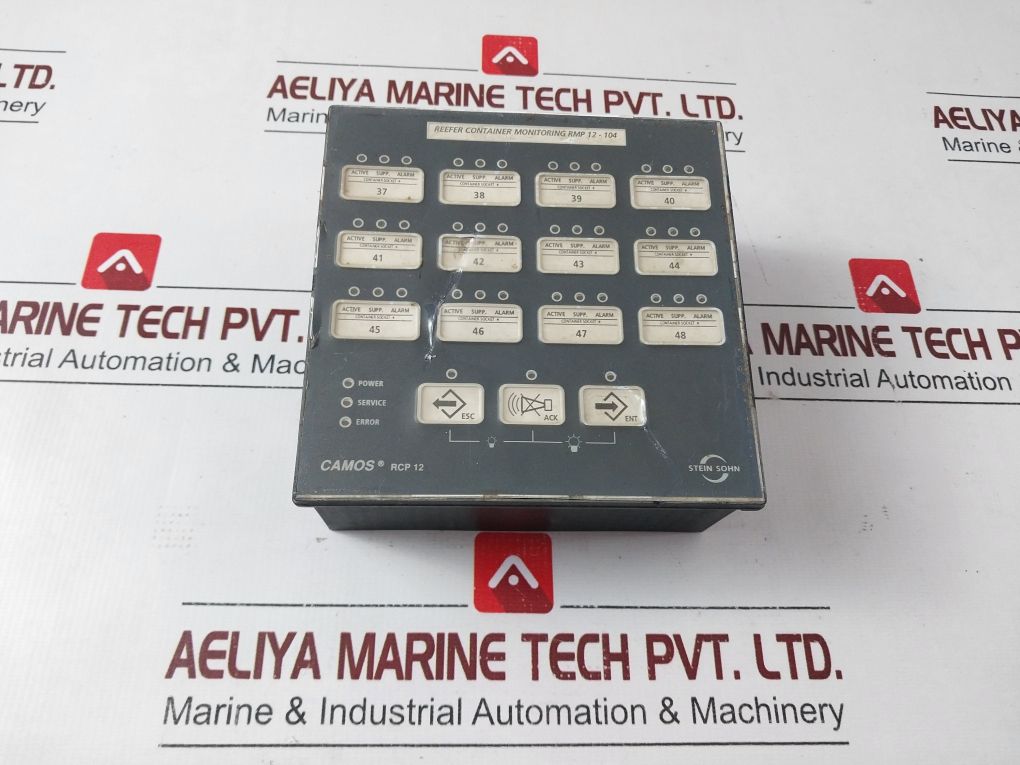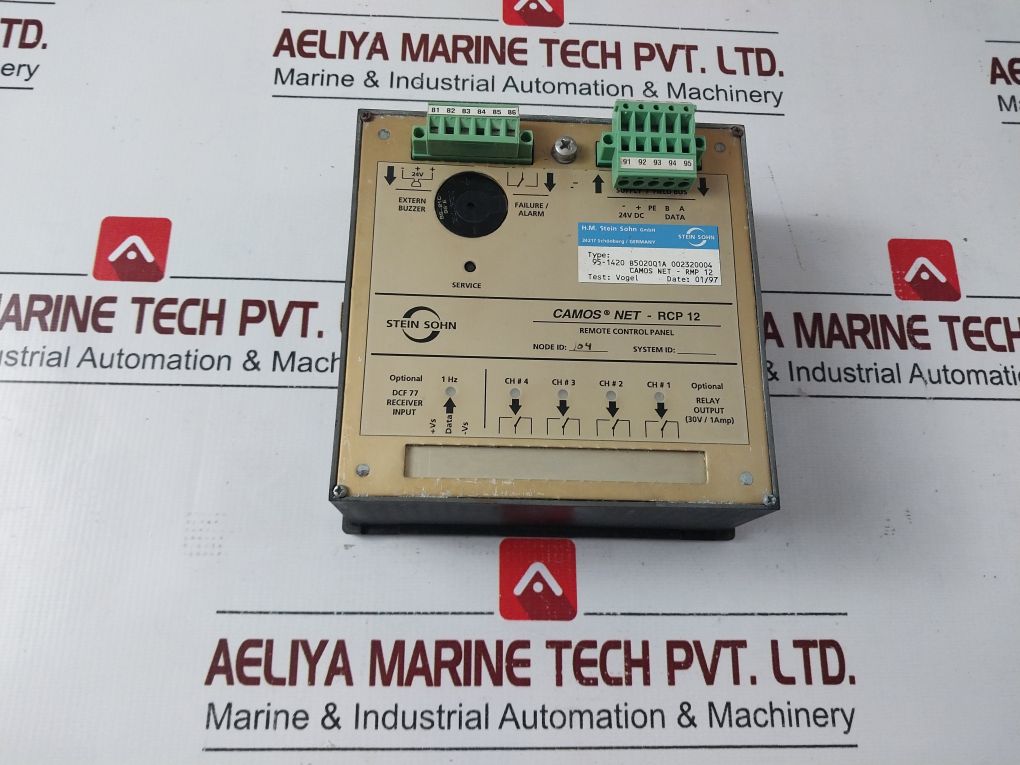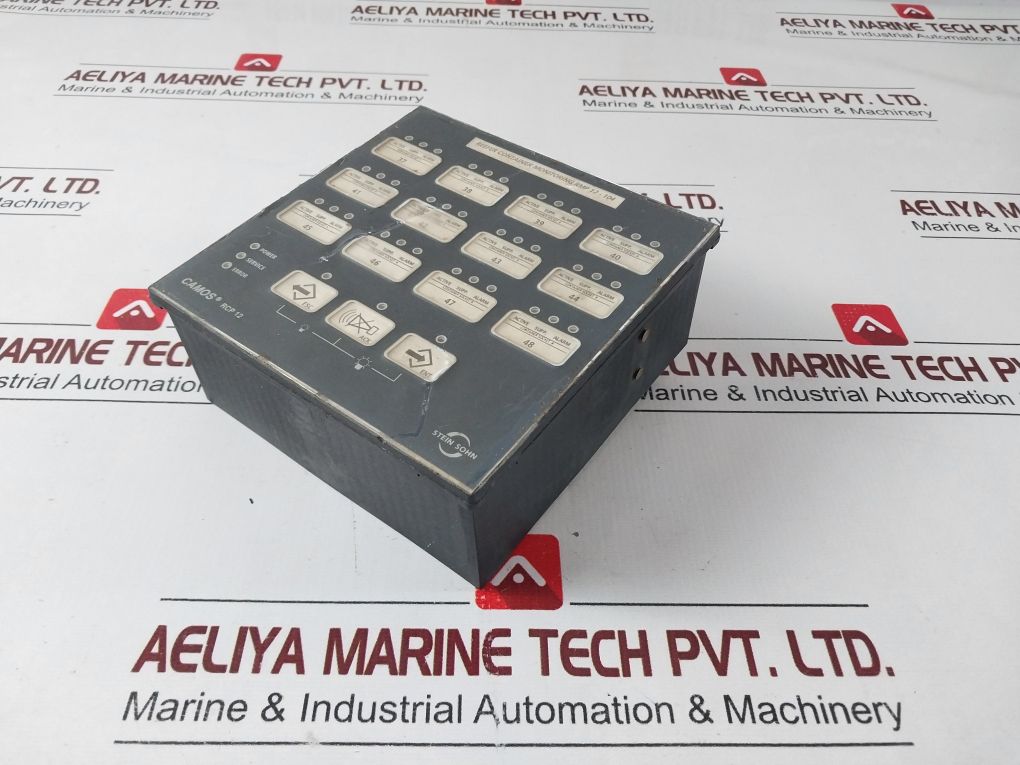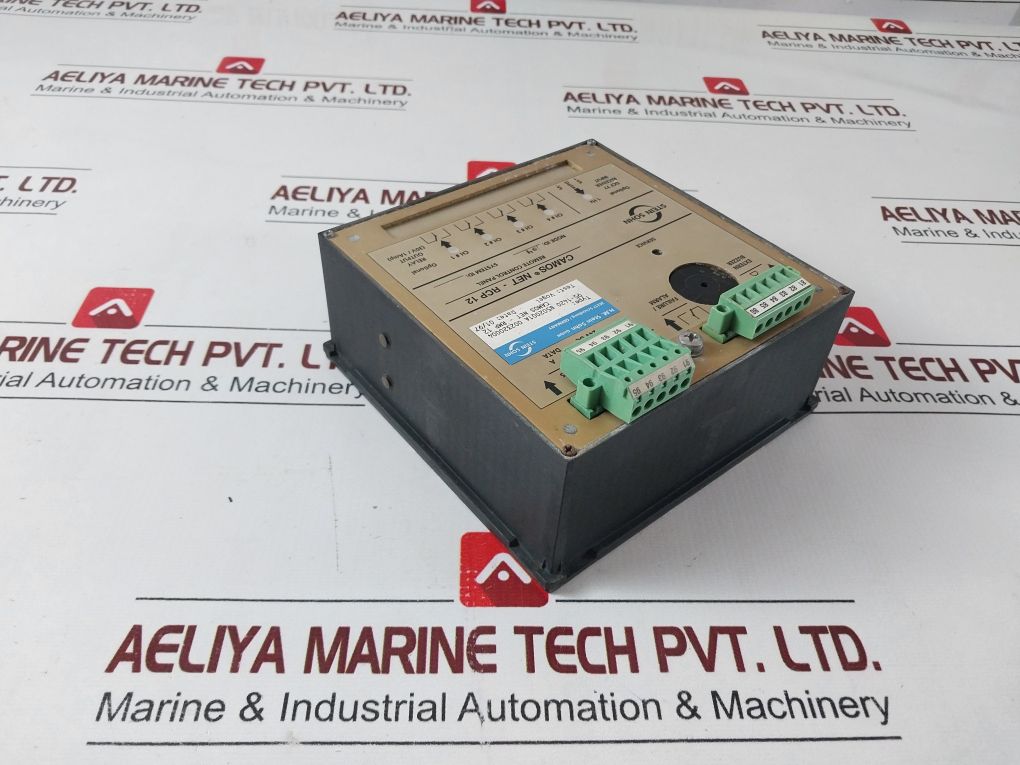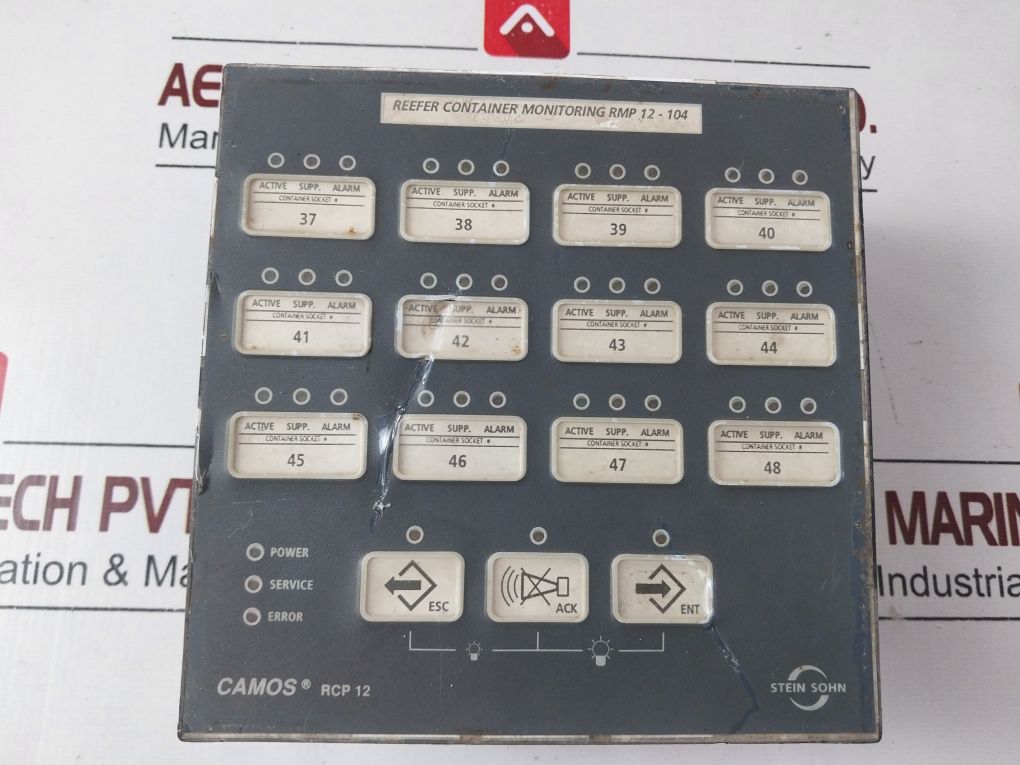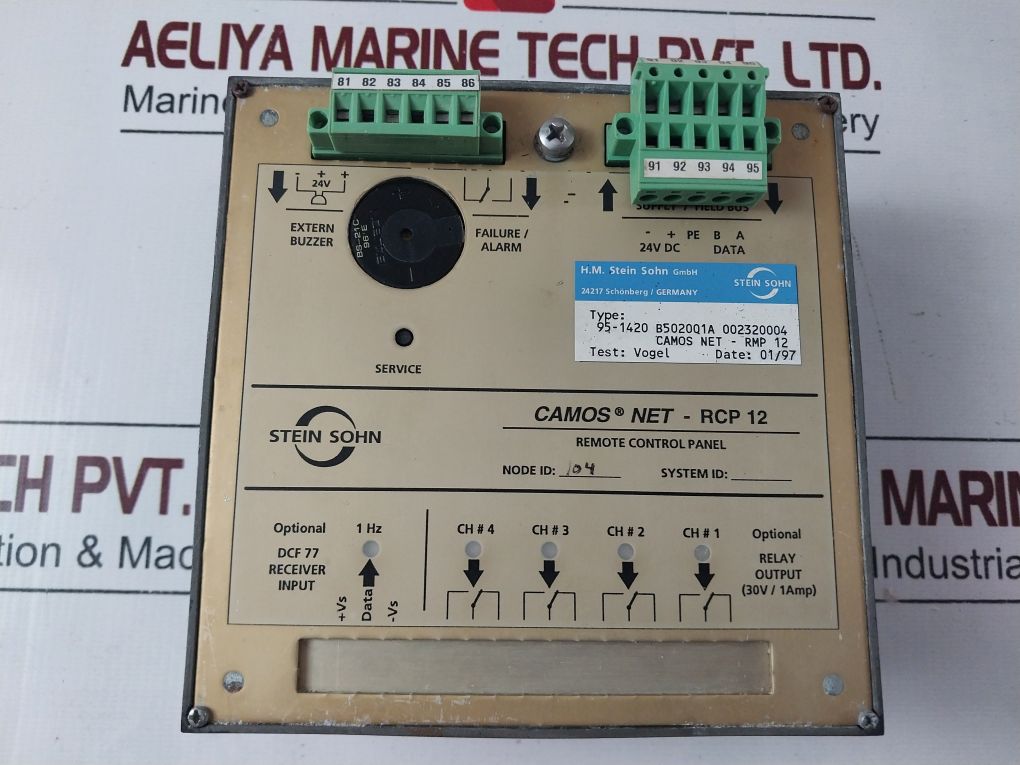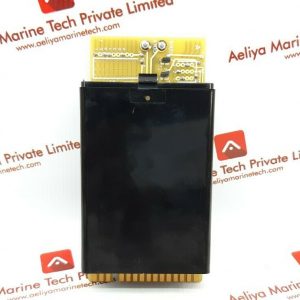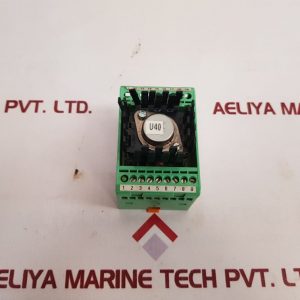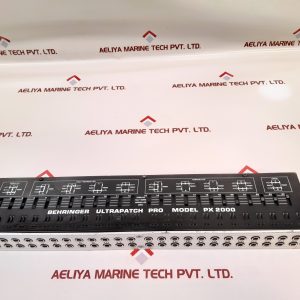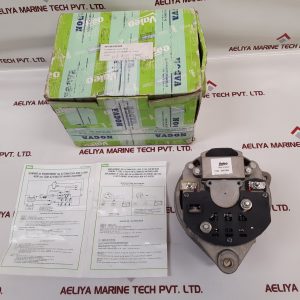H.m. Stein Sohn Rmp 12-104 Remote Control Panel
H.m. Stein Sohn Gmbh
Camos
Reefer Container Monitoring Rmp 12-104
Net – Rcp 12
Remote Control Panel
Node Id: 104
Type: 95-1420 B502001a 002320004
Camos Net – Rmp 12
24v Dc
Relay Output 30v/1amp
Germany
Weight : 570 Gm
Ref No : 64840
H.M. Stein Sohn RMP 12-104 Remote Control Panel
The H.M. Stein Sohn RMP 12-104 Remote Control Panel is utilized in marine settings. More to it, it forms part of a larger fire detection and alarm system designed for managing multiple zones within a vessel so as to monitor all areas for possible fire hazards.
Some of the core features that make RMP 12-104 a reliable option:
1. Friendly User Interface
The RMP 12-104 board has a straightforward and user-friendly interface which allows crewmen to work the board with minimal instruction. They shall be able to perform critical functions such as triggering alarms, sensor status checks, and system reset quickly, even in heavy situations.
2. Multizone Monitoring
The greatest strengths in RMP 12-104 are found in its ability to scan several fire detection zones in one go. A ship would have various compartments, and each compartment would need singular focus. All this would come together in one place via the RMP 12-104, reporting real-time conditions of each monitored zone.
3. Remoteness Operation
It is a named remote control panel; therefore, it can be operated offsite or distant from the location. This is really important in large vessels, where it is impossible to check and ensure that every single compartment is safe. Operators can activate alarms, monitor sensors, as well as initiate responses with the advent of a hazard, all without having to be within proximity of its receiving position, from the control room.
4. Emergency Bypass Functionality
In case of a system failure, an emergency bypass will ensure the operators can still manipulate the fire suppression systems manually. The importance of such redundancy in maritime safety equipment lies in the fact that there should be no single point of failure that would endanger the ship and its occupants.
5. Durability and Compliance
All marine equipment must meet stringent safety and operating criteria. The RMP 12-104 is built with strength for the harsh conditions of the marine environment, including humidity, salt, and vibrations. Moreover, it follows the regulations of the International Maritime Organization (IMO) and SOLAS (Safety of Life at Sea), meaning it has passed the quality test and approvals for use on ships at sea.
How the RMP 12-104 Improves Maritime Safety
A RMP 12-104 is not just a control panel but an integral part of the comprehensive fire detection and suppression system. Here’s how it fits into the overall maritime safety equation:
1. Early Detection and Immediate Action
The RMP 12-104 is integrated with smoke detectors, heat sensors, and other fire detection equipment, which provides early warning during a fire. The immediate visibility of which zone is affected means that the operators can act promptly and, potentially stopping the spreading of the fire.
2. Centralized Command
The RMP 12-104 gives the ship operator a single point of control for all the fire detection zones. This is always important, especially during emergencies, for which every minute counts, and every word must be delivered clearly. Instead of widespread and numerous systems, everything converges into one place.
3. It reduces human error-related risks.
A simple and intuitive interface ensures that, even under the hot glare of an emergency, crew members are able to function the system with maximum ease. The reduction of complexity must be utmost in a life-threatening situation, and the RMP 12-104 ensures to minimize human error through its design.
4. Monitoring around the Clock
A fire detection system can never be allowed to sleep. Its constant intent should always be on providing continuous monitoring-around the clock-in such a way that any deficiency would be identified immediately when it arises. This is all the more critical in places where a fire threat can germinate virtually overnight and with little or no warning.

